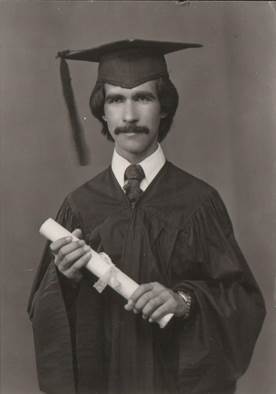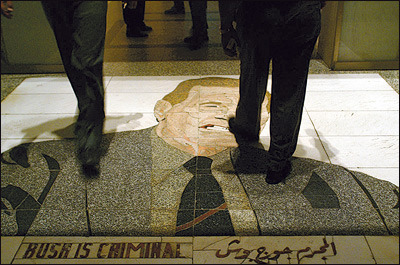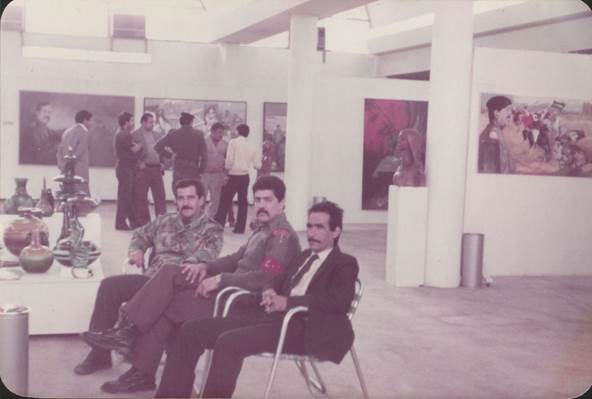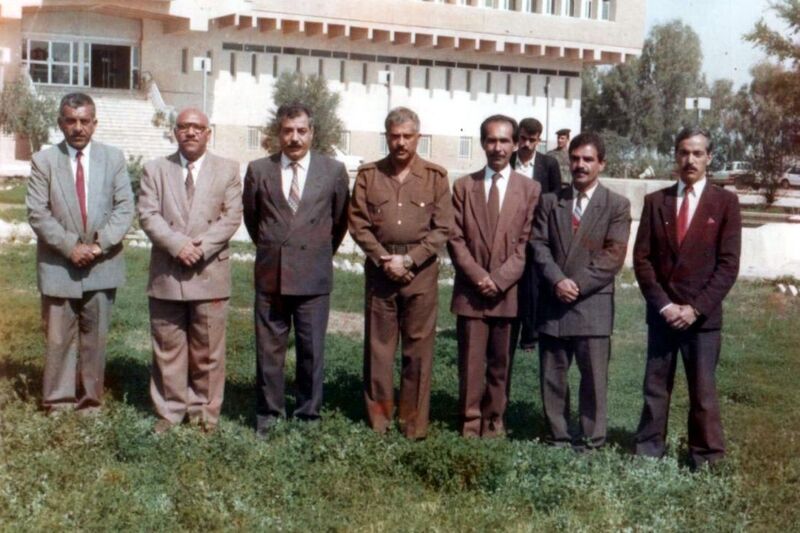Witness to Political Corruption
The Iran-Iraq war began in 1980 when newly elected President Saddam Hussein attempted to reclaim territory that had been conceded in a 1975 treaty. Saddam Hussein, motivated by the change in power in Iran after its Islamic revolution, intended to take advantage of this moment of transition. The war heavily hurt the Iraqi education system because the government no longer had the means to expand universities and fund scholarships. Along with other Iraqi men and boys, faculty like Dr. Karim were required to serve in the military. Dr. Karim served his mandatory term in the military during this period. He served four years in Basra and was allowed to visit his wife and two infants once a month. He produced and oversaw the production of propaganda art for the Iraq-Iran War.
Here, Dr. Karim sits at an art exhibition beside two uniformed soldiers: one a high ranking officer and the other a military guard there to oversee the exhibition. Behind them are glorifying depictions of President Saddam Hussein and an incongruous display of glassware. This scene is one of many examples of how fascist powers infiltrated the arenas of culture and education, limiting the type of knowledge and art produced.
Karim was also head of the Artists' Union of Najaf during the 1990s. There, he developed a mutual aid network to support artists during this economic deprivation. Because of this role, he witnessed the change in Najaf’s mayors and its sectarian implications. The former mayor only loosely employed the anti-Shi’a policies of the Ba’athi regime. When he fled Iraq’s dying economy, his absence left the Shia population of Najaf vulnerable to his stricter successor. The new mayor, who was Sunni, enforced these policies before the regime executed him for unknown reasons.

An Iraqi Artist’s Legacy

Political Retribution and Sanctions


